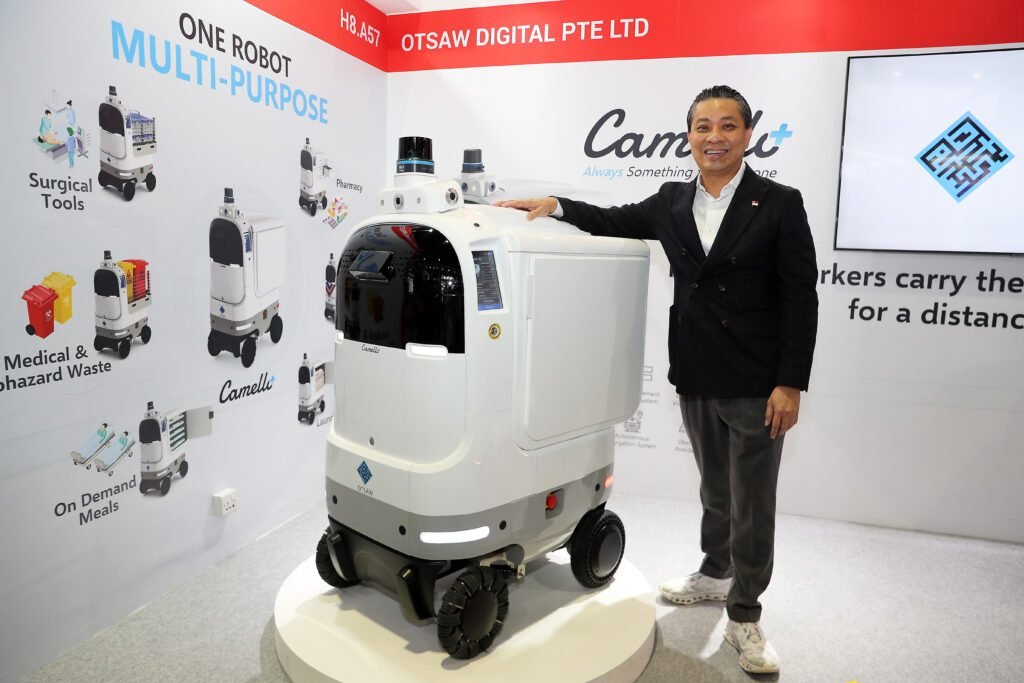In a rapidly urbanizing world where environmental sustainability has become more critical than ever, the United Arab Emirates (UAE) is stepping up as a pioneer in technological solutions for waste management. Among the many innovations championed by the UAE, robotics and artificial intelligence (AI) are emerging as the front-runners in transforming how the country deals with waste — efficiently, sustainably, and intelligently.
The UAE, particularly through the initiatives in cities like Dubai and Abu Dhabi, has begun integrating robotics into its waste management infrastructure with remarkable progress. These advanced technologies not only help reduce the environmental impact but also align with the country’s long-term vision of a greener, cleaner, and smarter future. This strategic move signifies a monumental shift in how waste is managed and underscores the nation’s role as a regional leader in environmental innovation.
Revolutionizing Waste Sorting with AI-Powered Robots
At the heart of this transformation are AI-powered robotic arms that are being used to revolutionize waste sorting processes. Traditionally, waste sorting has relied heavily on manual labor, which is time-consuming, prone to errors, and hazardous. However, with robotic arms equipped with advanced sensors and machine learning algorithms, waste can now be sorted with far greater precision and speed.

These robots utilize computer vision to recognize different types of materials — plastics, metals, glass, paper, and organic waste — and sort them accordingly. This automated process dramatically reduces contamination in recyclable materials, ensuring higher recycling efficiency. It also reduces the burden on landfill sites, helping to preserve natural habitats and reduce carbon emissions associated with waste transportation and decomposition.
One notable implementation of this technology is seen in Sharjah’s BEEAH Group, which has developed one of the most advanced recycling facilities in the region. Their AI-enabled sorting systems have significantly increased recycling rates and reduced operational costs. With real-time learning capabilities, these robots improve their sorting accuracy over time, adapting to new types of waste as they are introduced into the stream.

Smart Waste Monitoring and Disposal
Beyond sorting, robotics is also playing a key role in smart waste monitoring. In Abu Dhabi, the government has implemented intelligent waste tracking systems that monitor waste generation across residential, industrial, and commercial zones. These systems are integrated with AI-powered software that collects and analyzes data in real-time to ensure that waste management is both effective and compliant with regulations.
These smart bins and sensors provide insights into the volume, type, and frequency of waste generated. This allows municipalities to optimize collection routes, reduce fuel consumption, and enhance the efficiency of the entire waste management cycle. Robotic cleaners, deployed in both indoor and outdoor environments, autonomously detect and clean waste, providing round-the-clock maintenance in public spaces such as airports, malls, and business districts.
Such systems are also being used to forecast waste generation trends, helping urban planners and policymakers design better infrastructure for waste processing and recycling in the future. By turning raw waste data into actionable intelligence, the UAE is using robotics not only for physical tasks but also for smarter governance and planning.
Education and Innovation: Empowering the Next Generation
Recognizing that the future lies in youth and innovation, the UAE has launched multiple educational initiatives aimed at involving students in the robotics and waste management movement. The annual UAE Robotics Competition, for example, challenges school and university students to design robots that can solve real-world environmental problems.
One standout project featured a group of students who developed a smart garbage bin that could autonomously identify and separate recyclables from general waste. Another team worked on aquatic robots that clean plastics from water bodies, targeting marine pollution, which is a growing global concern.
Such competitions serve as incubators for future engineers and environmentalists, instilling a sense of responsibility and equipping them with the tools to drive sustainable development. The government, in collaboration with private enterprises, provides mentorship, funding, and platforms for showcasing these innovations, ensuring that young minds are not just learning but contributing meaningfully.
Corporate Innovations: Tackling E-Waste with Robotics
The rise in technology use has led to a surge in electronic waste (e-waste), which poses a unique challenge due to the toxic components and complex disassembly required. In response, several companies in the UAE are harnessing robotics to handle e-waste efficiently.
A prime example is Basatne International, which has established a state-of-the-art facility in Dubai Silicon Oasis. The facility uses AI-based robotic systems to process up to 7,000 mobile devices per day. These robots assess the condition of each device, decide whether it should be refurbished or recycled, and then execute the corresponding operation. This precision helps recover valuable metals and materials from the devices while minimizing environmental harm.
Moreover, such robotic systems can significantly reduce the carbon footprint associated with manual sorting and international e-waste shipping, helping the UAE meet its sustainability goals while fostering a circular economy model — where resources are reused, recycled, and reintegrated rather than discarded.
The Road Ahead: Towards a Zero-Waste Future
The integration of robotics into waste management is not merely a technological upgrade — it represents a shift in societal attitudes towards sustainability and innovation. The UAE has set ambitious targets as part of its national sustainability agenda, including reducing landfill usage and achieving zero-waste cities in the coming decades. Robotics is proving to be a vital tool in realizing these goals.
Going forward, the country plans to expand robotic solutions into more areas of waste management — including construction debris, food waste, and hazardous materials. Research is also underway to integrate robotics with blockchain technology for transparent tracking of waste movement and recycling outcomes.
International collaboration is another key aspect of this journey. The UAE is actively participating in global conferences, forming partnerships with leading robotics firms, and exporting its success models to other countries. This not only elevates the country’s stature on the global sustainability map but also fosters knowledge exchange and shared progress in tackling the global waste crisis.
Conclusion
Robotics is more than just a futuristic concept in the UAE — it is an essential, present-day solution transforming how waste is handled from the ground up. Whether through AI-powered sorting robots, autonomous street cleaners, smart waste bins, or student-led innovations, the country is weaving technology into the fabric of environmental sustainability.
This multi-pronged approach, involving government, private sector, educational institutions, and the public, creates a holistic ecosystem where innovation and responsibility coexist. With robotics leading the way, the UAE is not only tackling the problem of waste head-on but also setting a compelling example for the rest of the world to follow.
As the nation continues to grow, the synergy between human ingenuity and robotic precision offers hope — not just for a cleaner UAE but for a cleaner planet.
Do follow Uae stories for more Updates
Powering the Future: ADNOC’s Sour Gas Development Paves Way for Energy Security












